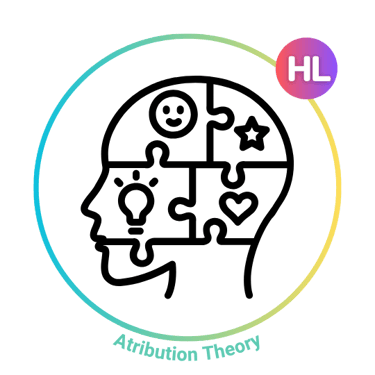





Overview
Attribution theory in sport psychology explains how athletes interpret their successes and failures, and how these explanations—or attributions—can influence their future confidence, motivation, and performance. When athletes reflect on the reasons behind a win or a loss, the way they attribute the outcome has a direct impact on how they feel about their ability to succeed again.
Two key dimensions of attribution are critical: locus of control and stability.
Locus of control refers to whether the athlete believes the cause of an outcome lies within their control (internal) or outside their control (external). For example, attributing a win to personal effort is an internal attribution, while blaming a loss on poor refereeing is an external attribution.
Stability refers to whether the cause is stable (unchanging) or unstable (changeable). A stable cause might be natural ability, while an unstable cause might be luck or the weather on the day.
The way these two factors interact shapes how athletes view their potential for future success. For example:
An athlete who says, “I won because I worked hard” is attributing the outcome to an internal and unstable factor—something within their control that can be repeated. This usually builds confidence and increases motivation to train and compete again.
Conversely, an athlete who says, “I lost because I’m just not talented” is using an internal but stable attribution, which may reduce confidence and lead to feelings of helplessness.
External attributions, such as “the opponent was just lucky,” may protect confidence in the short term but do not usually lead to constructive changes in behaviour or performance.
Athletes who consistently use positive, internal, and controllable attributions—like effort, preparation, or strategy—are more likely to remain confident and resilient after setbacks. They see success as something they can repeat and failure as something they can learn from and improve upon. On the other hand, athletes who focus on external or stable causes may struggle to recover from failure or feel that their performance is outside of their control.
Coaches and support staff can help guide athletes towards adaptive attribution styles by encouraging reflection, goal setting, and realistic performance analysis. For example, after a loss, instead of focusing on uncontrollable factors, athletes can be encouraged to identify areas within their control—such as concentration, decision-making, or physical conditioning—that they can improve.
In summary, attribution theory suggests that the way athletes explain outcomes, particularly in terms of control and stability, has a significant impact on their self-confidence and future motivation. Understanding and influencing attributional thinking is, therefore, a key tool in developing resilient, confident performers who are mentally prepared to face the challenges of competitive sport.






